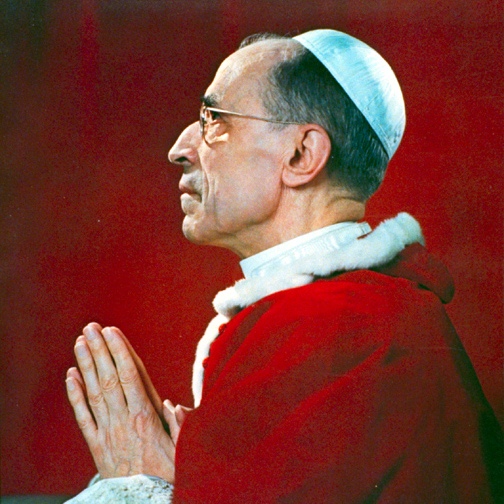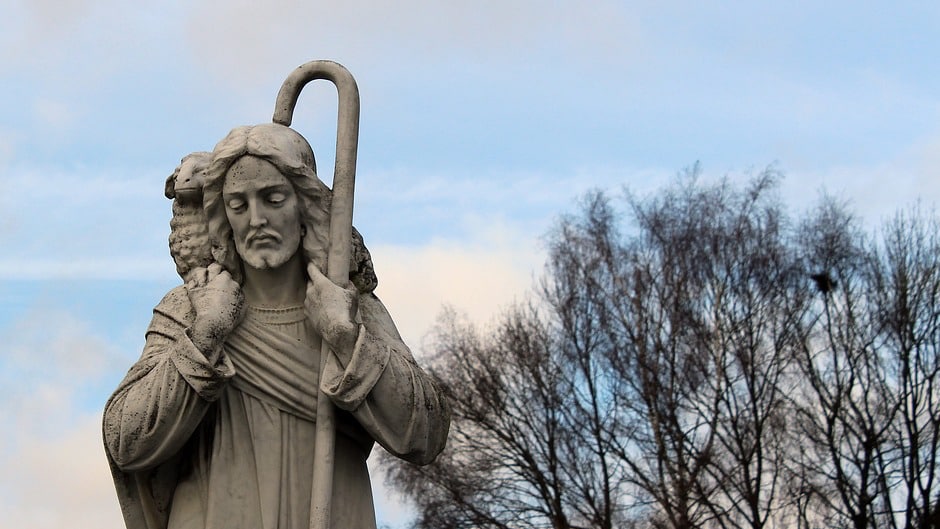 I recently turned 59, and in my lifetime there have been some truly remarkable popes, or chief shepherds of the Church. I was born near the end of the lengthy reign of Pope Pius XII, a great but somewhat under-appreciated leader who led the Church during the terrible years of World War II. His successor, St. John XXIII, revolutionized the history of the Church by convening the Second Vatican Council, though I was too young to be aware of what was happening at the time. I do remember very clearly the events of 1978: the death of Pope Paul VI, the very promising but extremely short reign of Pope John Paul I, and the historic election of St. John Paul II, during whose twenty-six year reign I was ordained a priest. I actually had the chance to shake hands with the Holy Father when he visited Detroit in 1987. I also had great respect for the quiet dignity and intellectual gifts of Benedict XVI, and like most of the world, I’m amazed and inspired at the humility and simple goodness and compassion of our current Holy Father, Pope Francis. All of these men have been worthy successors of St. Peter, the first pope.
I recently turned 59, and in my lifetime there have been some truly remarkable popes, or chief shepherds of the Church. I was born near the end of the lengthy reign of Pope Pius XII, a great but somewhat under-appreciated leader who led the Church during the terrible years of World War II. His successor, St. John XXIII, revolutionized the history of the Church by convening the Second Vatican Council, though I was too young to be aware of what was happening at the time. I do remember very clearly the events of 1978: the death of Pope Paul VI, the very promising but extremely short reign of Pope John Paul I, and the historic election of St. John Paul II, during whose twenty-six year reign I was ordained a priest. I actually had the chance to shake hands with the Holy Father when he visited Detroit in 1987. I also had great respect for the quiet dignity and intellectual gifts of Benedict XVI, and like most of the world, I’m amazed and inspired at the humility and simple goodness and compassion of our current Holy Father, Pope Francis. All of these men have been worthy successors of St. Peter, the first pope.
What does the future hold for the papacy? The 12th century Irish bishop St. Malachy supposedly predicted we would have only one more pope before the end of the world, though not all scholars interpret the prophecy in this way, or even accept it as authentic. There are various contemporary alleged private revelations—which no Catholic is required to believe or take seriously—about Pope Francis. We’re told, for instance, that Pope Benedict was acting in obedience to an inspiration from the Holy Spirit when he suddenly resigned last year, that Francis was chosen long ago and prepared for his leadership role by Our Lady, that he is the one who will finally consecrate Russia by name to the Immaculate Heart of Mary (as first requested by Our Lady at Fatima almost a century ago in 1917), and that he will die as a martyr on behalf of the Jewish people while visiting the Holy Land—an event which will supposedly be such a spiritual shock or awakening to the Jews that a majority of them will suddenly accept Jesus as the Messiah and enter into the Catholic Church, with the center of the Church and the papacy itself shifting from Rome back to Jerusalem, where it was at the very beginning. Will these events actually come to pass? Only time will tell. What we can be absolutely sure of, however, is that Jesus the Good Shepherd will never abandon His flock or leave His Church without authentic leadership. As His followers, we each have an important role to play in the unfolding of His plan of salvation—and hearing and answering His call is meant to help us, and those around us, become part of His Kingdom.
On the Fourth Sunday of Easter, we not only celebrate Mother’s Day, but also the World Day of Prayer for Vocations, and each of the readings has something important to say on this subject. In the Acts of the Apostles (2:14, 36-41), we’re told that when Peter exhorted the crowd, they were “cut to the heart.” At times we may become aware, suddenly and unmistakably, that God is asking something of us—and when this challenge arises, it’s essential we try to respond with obedience and trust. In 1 Peter (2:20-25), St. Peter tells us that “if you are patient when you suffer for doing what is good, this is a grace before God.” Every vocation involves some degree of suffering or sacrifice, whether marriage, the single life, or the priesthood or religious life—but through God’s grace, we can receive back far more than we give. In the Gospel of John (10:1-10), Jesus states that those who hear His voice follow Him, and this allows Him to give them the abundance of eternal life. What a sad thing it will be on judgment day if we have to admit that we had ignored God’s call, or failed to encourage others to hear and respond. Just as loving mothers want what’s best for their children, and therefore try to help them find their way in life, so we as disciples of Jesus are meant to assist others—especially young people—discern and pursue their particular vocation, whatever it might be.
During my thirty-two years as a priest, I’ve baptized over 1000 people, presided at almost 300 weddings, conducted nearly 800 funerals, written some 1600 bulletin columns, sat in more than 300 parish council meetings, and said Mass roughly 13,150 times. On some of these occasions I was tired, not feeling well, had physical difficulty speaking because of colds or allergies, worried over various problems, or feeling a bit overworked—but never, during any of these liturgies, ceremonies, or parish events, did I ask myself “Why am I doing this?,” or feel that I had made a mistake in becoming a priest. It is a great life for those who are called to it, involving some sacrifices and many blessings. Are young men, and even older men, still being called in this way? Of course. Do all of them hear and respond? Sadly, the answer is no; the attractions and distractions of this world can be too powerful or difficult to tune out, and sometimes a potential priest never even considers the possibility simply because no one ever suggested it to him.
That’s where you and I come in—you more than me, because you know the people in your life far better than I ever could. Is there a young man, or perhaps even a somewhat older unmarried man, known to you whom you think could make a good priest? If so, pray about suggesting this idea to him; ask the Holy Spirit to guide you in knowing when to speak and what to say. The vocations office in your diocese has many resources available to help people discern what God is asking of them, and I’m happy to share my experience of the priesthood with anyone seeking guidance—but we need your help in unearthing possible vocations if this is to happen. We rightly honor mothers for all they do in giving life to their children; an equally great accomplishment can be helping bring to life a vocation to the priesthood, diaconate, or religious life by our prayerful encouragement and support of someone we know who may be called in this way.
Jesus speaks of the importance of having true shepherds, not strangers or false shepherds undeserving of the trust of the sheep. However, this does not happen automatically; while God does the calling, many times He expects us to do the inviting. There will always be a pope, but there may not be enough priests; a growing shortage is occurring in many parts of the world, including here in the United States. What we do, or fail to do, in this regard will have an impact on our own future experience of parish life. Now is the time for us to cooperate actively with Jesus’ plan for the good of the Church—for only in this way can we hope to have life, and have it more abundantly.






